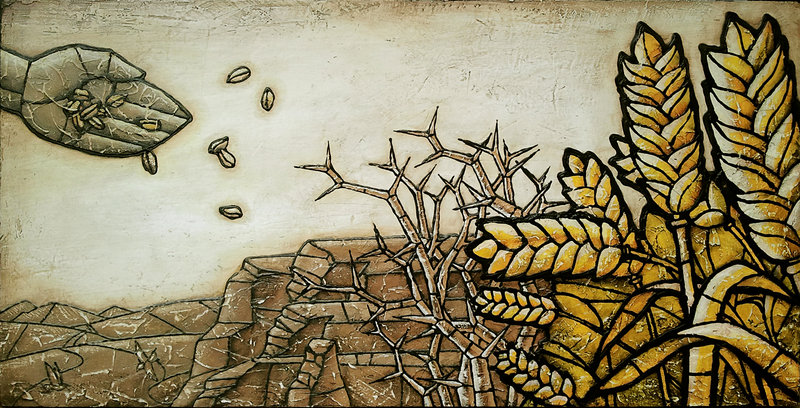
MONDAY, TWENTY SIXTH WEEK IN ORDINARY TIME
Feast of Archangels Michael, Gabriel and Raphael
Dn 7: 9-10, 13-14 Ps 138: 1-5 Jn 1: 47-51
SINGLE-HEARTED LOVE
Nathanael comes in to the picture with a lot of prejudice that existed during the time of Jesus. He says, “Can anything good come out of Nazareth?” He starts of by being skeptical of Jesus as the Messiah even before he meets Jesus and when he learns that Jesus is from Nazareth, his skepticism only grows further. Jesus’ opening greeting to Nathaniel breaks through all the walls that he has built up in his life and as the conversation continues Nathaniel comes to believe that Jesus is the Son of God. Now this is a quick transformation. But this is the plain reality of an encounter with Jesus – Jesus transforms us!
How often do we keep ourselves at a safe distance from Jesus? We cannot see him now and that can be a big hindrance to building on faith. He promises that we will see the heaven opened and we shall see the Son of Man and the angels ministering to Him. But how and when do we see this? How do we truly encounter Him? All we need is to approach Him so as to genuinely encounter Him. Our coming to Him would transform us. Our journey with Him would transform our heart.
Nathaniel’s heart was ready to listen, to be touched, to be transformed. He was genuine and honest and had no deceit in him. This also means that he nurtured a single-hearted devotion to God. His heart was not divided in caring about other things. He genuinely desired God and wanted to encounter Him. And he received just that when he met Jesus. May we truly desire to meet and encounter God when we come to Him, in our own prayer, in the Eucharist and in Confession. May we open our heart in undivided attention – Jesus thirsts for our hearts. He is waiting to open our eyes, to transform our heart to love and believe, which is a life-long process. The deeper we believe – the more undivided our heart becomes, until the day when we see Him in the resurrection and we will single-heartedly love Him just like the angels do.
Response: In the presence of the angels I praise you, O Lord.
Copyright ©2025 ©Springs of Living Water http://springs.carmelmedia.in










